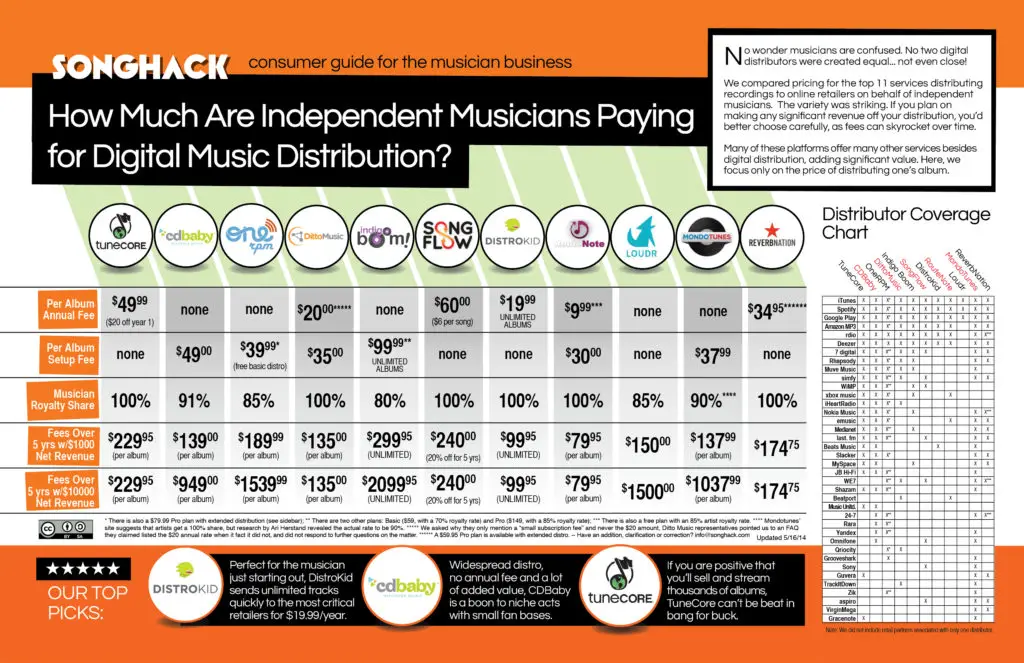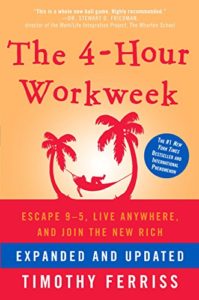Mistakes to Avoid: Lessons Learned From 6 Years Of Blogging
Creating the next media empire may sound daunting but every media icon has one thing in common. They had to start somewhere and take that first step. We’ve created a list of lessons learned to help you avoid common pitfalls and take your hobby to the next level whether it be music, art, blogging, or anything in between.
Is now a good time to convert your hobby into a side hustle? Yes. There are more part-time opportunities for career development online than ever before. Staking your claim sooner than later will always help you grow organically over time. Even if your focus changes over the years, building a strong foundation will result in plenty of transferable skills.
Our team has created several small companies and websites which have continued to grow since 2014. They’ve been all over the map selling physical products, services, and ad space. We’ve learned a lot over the years as some of these projects expanded into a full-fledged business.
Did I become an expert blogger who makes millions? No. Was it worth the time and effort? Absolutely! By The Barricade’s successes and failures have created lifelong memories, awesome opportunities, and helped me both on and offline.
Here are a few pointers to keep in mind as you start on your new journey.
Start today

Nike’s motto of “Just Do It” still rings true decades later. You don’t need to be an expert to get started. In fact, there are fewer barriers to entry than ever before. Chart-topping albums are being recorded in hotel rooms, blogs are being sold for millions, and you can sell products online with just an Instagram account.
It might feel like everyone out there is a pro but nearly 70% of individuals will experience symptoms of impostor syndrome at least once in their life. With so much information out there you don’t need to be an expert. People who claim to know more than everyone else should probably make you skeptical. Here are some tips to stand out from the crowd:
- Find unanswered questions or unfulfilled needs
- Research what information is already out there
- Compile what you’ve found in an interesting or more complete way.
- Link to your sources to help establish credibility
- Post
Your first attempt probably won’t be a masterpiece. So what. Everyone’s first attempt sucks and improves with practice. The longer your site has been around, the higher it ranks in Google’s organic search weather that’s a bakery website, online store, or news blog. Luckily your content can be updated years later so you can almost always iron out the kinks later.
Double Down On Quality
Don’t skimp on quality. Whether it’s a song, picture or article always swing for the fences. Five amazing and over the top pieces will probably stand out better than 20 average pieces.
Competition for attention is fiercer than ever. Each month more than 70 million new posts are created. Most aren’t ever seen. There are also four million songs on Spotify that haven’t ever been played so focus on making a product that stands out from the heard.
You can start without an audience. Luckily there are tons of tools like Reddit specifically designed to find diamonds in the rough. For now, just start creating the best stuff you can and wait to see what works before optimizing.
Create for others.
A lot of bloggers and YouTubers share experiences and focus on what they like. We call this “Me” content. The personal connection strategy sometimes works great for YouTubers once they have an audience but you’ll first have to expand your audience beyond just friends and family.
Search what’s working for others and try to put your own spin on that format. This is why ‘reaction videos’ are plastered all over YouTube. Smaller channels want to be seen by people searching for that more popular topic.
For example, an article or video titled “10 Best Restaurants In Bali” will probably perform better than a video called “The 10 Dinners I Ate while On Vacation.”
Almost any medium can use this tactic. Try thinking “Who is it that needs this content and what would they be looking for.” The internet marketers at Income School really nail this topic. Here’s a YouTube video with an in-depth explanation.
Our site recently pivoted to sharing informational topics that people are googling instead of concert reviews. The switch may not be as fun but it’s really working. Now, before writing an article we do tons of keyword research on what people are actually searching for instead of just hoping our articles appear on google.
Stick With It
Rome wasn’t built in a day and neither was our website. Power through the first 6-8 months without expecting a return on investment. Income School has built dozens of profitable projects and see a similar lull. They even created a 24-month roadmap as a benchmark to see if you are on track with their standards.
It took our team about that long to get the first set of actionable data. It took another year of tweaking and several iterations before we started seeing financial returns.
Think of your project as a seed. It will take several months before you can harvest even if you do everything right. Here’s a video that goes into the nitty-gritty of “writing to a ghost town”
Note: Avoid quick tricks while building an audience. Hundreds of companies offer services that sell fake views, streams, followers, backlinks, everything. Avoid these like the plague. Google, Facebook, YouTube and all the other social media platforms are constantly working to penalize people who use these black hat tactics. Prioritize long term success
Our expectations were really high when the team first started because our competitors were seeing great success. Luckily we received thousands of social shares from the musicians we covered to boost our articles but results were hit or miss and unsustainable for years.
It took us about five years of research and development before our financials started to resemble a sustainable business. After starting this website we launched a record label and then focused in on an artist publicity agency. There are probably a million easier and faster ways to get to profitability but I’m proud of the accomplishments we’ve made along the way.
Treat Your Hobby like A Business
If you expect to make your art into a business know there are costs. The phrase “it takes money to make money” rings true in all aspects of life but it probably costs less than you would expect. Here’s a video with a detailed financial breakdown of what it takes to make that first step.
Transitioning from a hobby to business also requires a change in mindset prioritizing stuff people actually want. Check out the “minimum viable product” method to test the waters before dumping a huge budget into a project.
Our biggest mistake over the years was focusing on physical albums even though fans almost exclusively wanted to stream songs digitally. Now we start several short term projects and expand only the top few that show potential.
Calculate The Cost of Business Subscription Services for 5 Years.
It seems like almost every industry has fallen in love with subscription models. Spotify, Netflix, Squarespace, Microsoft Office, Quickbooks… the list of awesome products for a small monthly fee is endless. Sometimes subscriptions are unavoidable but we’ve learned the hard way to do the math before pulling the trigger.
It’s really important to ask “how much will this cost me in the next 5 years” before starting any subscription. The cost might surprise you.
Subscriptions are great when you want up to date fixes, quality tech support, and a low intro cost. Unfortunately, those costs rack up and increase over time. If you subscribe to five or six services you end up with a colossal monthly bill.
I’ve noticed a lot of bands that subscribe to services like TuneCore for digital music distribution and Squarespace for an easy website. The math doesn’t check out in the long rung. Songhack has a great article showing the cost of digital distribution overtime.

For example, we paid $250 for a license to use Elegant Themes to build our first website. That purchase lasts FOREVER. The cheapest monthly plan form Squarespace on the other hand is $144 a year.
Same with digital distribution. Our record label uses Catapult Distribution whenever possible. Instead of a monthly fee, they take a % of sales. For a small label like us Catapult’s pricing scales with us so it makes a lot more sense.
Investing in your business is great, just make sure you know the real cost before pressing purchase.
Limit Optimization
I’m guilty of spending weeks and thousands of dollars to get a website or project looking exactly the way I want. Occasionally it pays off, but there’s always a point of diminishing returns where it becomes more beneficial to create new stuff than revising old stuff.
Try to limit optimization to 30% of your total monthly time commitment. If you can last through the ghost town phase it will produce actionable data on what is bringing the best results.
Once you’ve been active for a year create a list of articles organized from best preforming to worst. That way you’ll know where to tweak and which fixes would have the most impactful results.
Revamping the theme, installing a new plugin, or playing with some new cutting edge technology can quickly eat up the time you originally budgeted for creating. There have been plenty of weeks where I felt supper productive but the shiny new toy didn’t create results.
Build Your Team
Everyone’s life can seem hectic at times but working on a hobby project and a regular full-time job can be exhausting at times. For most people, it can feel like there just simply isn’t enough time in the day to accomplish ambitious goals. Luckily you can leverage online tools and services to build a team to help and support you.
Hiring support staff might seem difficult and expensive but it’s a lot more reasonable than you might think. Sites like Upwork allow you to hire remote freelancers for hourly one-off projects for as little as one hour a month. They even have tools like payment escrow and screenshot verification to keep you safe.
It’s really important to become hyper self-aware of the tasks you do well and the tasks you struggle with. Needing help isn’t a problem but not knowing you need help might cause some subpar results.
We’ve been using Upwork for years. Having a pool of seasoned professionals has helped fill in my skill gaps and accomplish more within each day. We’ve gotten help with web development, accounting, data entry, writing, and graphic design just to name a few.
having a reliable team to work with, ask for guidance, and bounce ideas off of has become an extreme asset. Communicating remotely in a manager role takes some work but having a capable team that can grow or shrink alongside our projects makes a world of difference.
Be Careful With Cross Promotions and Partners
After a year of creating and tweaking you’ll have a pretty solid portfolio. Now that you can prove you know what you’re doing emails might start appearing in your inbox with collaboration opportunities. Free stuff or payments for cross-promotion is great but think long and hard before picking a partner (especially if there is a long term commitment or contract.)
Kevin Lyman, the creator of the massively successful Vans Warped Tour dove deep on the importance of picking a good partner, and the message still rings true. His example of a skate ramp with the logo of an underwear brand sent shivers down my spine.
Conclusion
If you’re ready to take the next step towards converting your hobby into a career now is a better time than ever. There may be immense competition but there are still plenty of opportunities to put your own spin on a product or service.
Is it still worth investing time and money into honing your craft even if you don’t see a substantial return? Absolutely! People are creating side hustles now more than ever to supplement their income and improve their situation. Luckily all these steps can be implemented on a part-time basis and scaled once profitable.
I’d love to tell you some cliché like “love your work and you’ll never work a day in your life” but that’s just not true. Creating this site and other has been some of the most rewarding work I’ve ever done but it’s just that; work. Hopefully taking more control over your life will create work you enjoy.
Additional Resources
If you’ve read this far and still want more there are plenty of books that offer actionable steps for brining your side hustle to the next level:
 The 4-Hour Work Week by Tim Ferriss is a great read about how to get more out of your time. It discusses how to expand your team, outsource work, and get the best ROI out of each hour you’re awake.
The 4-Hour Work Week by Tim Ferriss is a great read about how to get more out of your time. It discusses how to expand your team, outsource work, and get the best ROI out of each hour you’re awake.- The E-Myth Revisited by Michael Gerber has some great recommendations on how to move up the corporate ladder even if you’re working for yourself.
- Built To Sell by John Warrillow delves deep into changing your mindset and preparing your business for the future. The book details specific steps on how a small graphic design firm was sold for millions that you could implement quickly as well.
- The Mike Dillard Podcast is also a great free resource with hours of expert advice and real action items across the board. His episode on how to get free publicity was phenomenal.
—
Keep it on Bythebarricade.com for tons of punk rock interviews, reviews, articles, and photos! Also, “Like” By the Barricade on Facebook to never miss a post.








